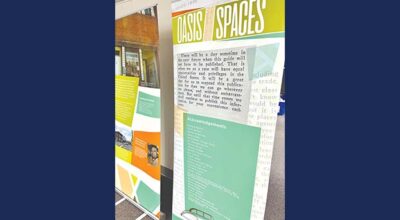Disappearing revenue: Legislature’s actions Bring about reduced money for municipalities
Published 7:44 pm Wednesday, June 17, 2015
In recent years, municipalities in North Carolina have been dealing with changes to state laws that negatively affect their revenue, sometimes by eliminating revenue sources.
In 2011, the N.C. General Assembly changed annexation laws that make it more difficult for cities, towns and villages to extend their limits. Annexation is a way for those municipalities to grow their tax bases and bring in more revenue by doing so. Annexation reforms enacted four years ago make it more difficult for municipalities to grow their tax bases.
Before those annexation reforms, municipalities could charge property owners in annexed areas for installing water lines, sewer lines and other infrastructure required to provide them city services. These days, municipalities are prohibited from imposing such charges, thereby losing a revenue source they once had.
“What you’ve seen, in effect, is this 2011 law has basically put a moratorium or it’s just killed any annexation activity whatsoever. As far as I know, there’s been no city-initiated annexation since this law was enacted in 2011,” said Chris Nida, director of research and policy analysis for the North Carolina League of Municipalities.
As of July 1, municipalities will lose the authority to raise revenues by issuing business privilege licenses. Last year, the General Assembly stripped that authority from municipalities.
The state’s cities, towns and villages combined will lose at least $62 million in the upcoming fiscal year, according to Nida. Washington will lose about $120,000 in the next fiscal year because of the change, according to city officials.
Municipalities’ loss of revenue because of annexation reforms and losing the authority to issue business privilege licenses were among several topics discussed during a meeting concerning municipal finances held in Greenville on Monday. That meeting was conducted by NCLM.
Two bills in the Legislature, if they become law, would also reduce municipalities’ revenues, according to NCLM.
House Bill 168 and Senate Bill 321 would exempt homebuilders’ inventory from taxation for a period of time. Specifically, the bills exempt property value attributable to subdivision or other improvements from property tax for five years or until time of sale. That exemption would not be limited to general contractors — only “a taxpayer engaged in the business of buying real property, making improvements to it, and then reselling it.” The bills specify that property appraisals be based only on value before subdivision or improvement.
If that legislation becomes law, municipalities will lose revenue they currently receive, forcing them to look for other revenue sources to replace what they would lose, cut services or both, NCLM contends. When it comes to replacing that lost revenue, one option could be raising taxes, which likely would not sit well with taxpayers, said several municipal officials who attended the meeting.






